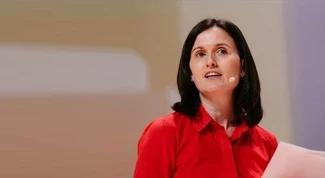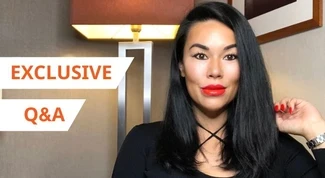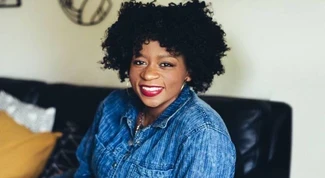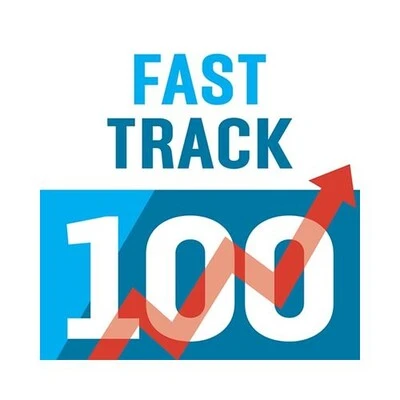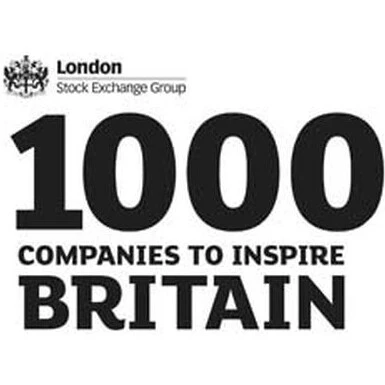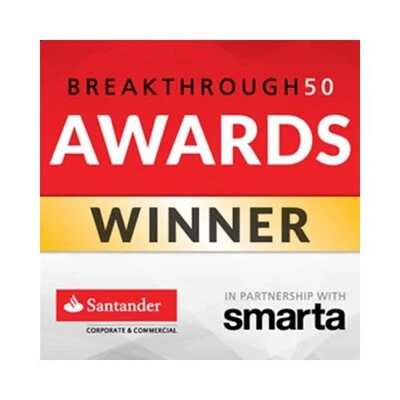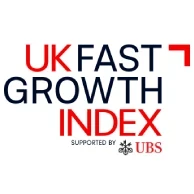We recently sat down with the former Chairman of ASOS and Managing Director of Amazon, Brian McBride, to discuss the many facets of business success. From Covid-19’s impact on digitisation to the power of e-commerce, Brian reflected on the future trends that will springboard innovative companies.
Brian McBride is one of the world’s leading businesspeople. His vast experience in the digital sector makes him an impactful business speaker, as Brian’s experience with such companies as Trainline and T-Mobile centred around online dominance. When booked for events, Brian supplies audiences with a toolbox of techniques for digital expansion and innovation.
What is the secret to Amazon and ASOS’s exponential business growth?
“Amazon and ASOS know their customer and realise one size does not fit all.
“ASOS knows its customer very intimately. They know their date of birth, their hair colour, size, and shape, so they know exactly what works for the customer and what doesn't.
“ASOS create a very trusting, special place for their customer, and make their shopping experience much better through this customisation. There's no point giving somebody 500 choices when you could narrow it down to 36 really relevant ones. If somebody has never bought white jeans in their life, why keep chucking them pictures of models in white jeans? They're just not going to buy it. So ASOS get to know their customer very well and serve up exactly what they want.
“The Amazon approach is quite different. Think about what you've told Amazon. They have never asked for your date of birth, so they don't know your age. They don't know whether you're male or female or if you're Chinese or British. They don't know anything about you, they only know your email address, delivery address, credit card number and your purchase history.
“Using that information and their phenomenal algorithm, they know that people who bought this product here will also buy that product over there. They know associations that you could never guess just by logic, and they've got it through the accumulation and management of twenty years of data.
“So, two very different approaches. One is heavily personalised and the other just uses masses of data. But in their own way, they both know an awful lot about what customers do and what customers want, and that has been the cornerstone of success for both of them.”
COVID-19 has moved business digitisation forward years in a matter of months, what should a brand do to ensure they are using digital as part of their marketing mix in the most effective way?
“If you are a B2C company and you're not using digital today, I don’t think you will still be around in the next couple of years.
“That doesn't mean you have to throw out all of the other things that you're doing, but you need to look at your marketing mix, look at the balance between online spend and offline spend.
“When I think about marketing, I realise you do still have to spend some money offline, but I now class that as brand building. It's about creating an image for your company, but if you actually want to create a call to action, you have to understand digital marketing.
“It's about that ad or piece of social media popping up at a certain point to try and generate a fairly immediate response from the customer. Digital marketing from a business's point of view is about measuring return on spend and measuring how quickly it takes the customer to respond to it.
“People used to say social media and mobile phones were for younger people - well, they were saying that 10 years ago.
“An example of how this is changing is my 90-year-old father-in-law. He uses WhatsApp to communicate with his grandkids and his great-grandkids, he’s getting his groceries online. People of all ages and demographics are now using online as part of their everyday life, so you have to recognise that as a company and give it to people in the right way.”
What is the secret to capturing and maintaining audience attention in the digital era?
“I always start with the great mantra I learned from Jeff Bezos.
“Jeff always said, ‘start with the customer and work backwards’ - I think that should be at the centre of everything.
“If your company is business to consumer [B2C], it's ultimately all about selling a product or service to the customer. So, you've got to start with them and work backwards. Ask yourself, ‘what do they need, how do they need it and where are they going to be?’.
“ASOS and Amazon are two very different companies, but ASOS knew its demographic very well. It knew that its target audience was mostly young, female, 20-somethings. It knew what social media sites they were on and what sort of things they like and post.
“So, possessing a detailed knowledge of your customer is the starting point, and that's always been the advantage that the online players have had over high street stores.
“The high street stores have done a pretty decent job, but they never really knew the customer. If you were a Topshop or Debenhams on Oxford Street, you naturally got a lot of footfall, and once people walk into your store, you then get a chance to sell them something.
“But you weren't really driving them coming into your store initially - unless you had a great window display. Whereas an ASOS or an Amazon can stimulate views. They know what you like and what you don't like.
“So that’s the main piece: know your audience, know where they're going to be and know how they want to be communicated with.
“An 80-year-old person isn’t going to want to be communicated with via TikTok. They will probably respond to an email, more likely to a flyer coming through the door.
“It’s all about knowing your demographic, knowing your audience, and reaching them in a way that they will respond to.”
What would be your top tips about marketing the opportunity of e-commerce?
“If you're selling something and you don’t have an e-commerce offering, whether it's through your own website or through using eBay and other marketplaces, I think you're going to be existentially threatened.
“I say to people, ‘you’ve got to evolve very, very quickly or you're going to die’. We've seen years of change happen in a matter of months and that shift is permanent. It's about starting with the customer and working backwards because customers want to buy stuff online.
“When discussing this area, I think back to Charles Darwin who wrote The Origin of the Species in 1859. He said, ‘it's not the strongest or fastest of the species that survive, it's the most adaptable’. So, those companies that are observing what's going on around them and are changing accordingly, are the ones that will succeed.
“This move to online has been happening for 15 years and yet there are lots of companies waking up today saying, ‘oh, this Covid thing has come along, and my customers are now buying more stuff online’. Well, Covid-19 has accelerated these trends, but it hasn't created them. These trends have been going on for 10 years and too many companies have been asleep at the wheel.”
“If you haven't picked up the imperative of doing e-commerce and digital business, it might be too late for you.”
Which industries do you predict will dominate 2021, and what are some of the next big disruptive trends?
“There are some megatrends that have been around for a while, like a move away from fossil fuel. Electric vehicles saw a huge amount of technological improvement in terms of battery and storage. But I don't think that's going to have a big splash in 2021, that’s a slower burner that will probably impact us over the next four or five years.
“I think social media is going to have a bit of a revolution because people are getting fed up with the power of the big companies, and the way they are using our data. People are mostly fed up with the lack of privacy, so will think twice about how much they share with Facebook and Twitter, and even their mobile phone providers.
“So, I predict we’ll see an explosion of different companies and people using social media differently.
“There has been a massive shift going on in content today regarding how people are consuming. People now consume TV and movie content through platforms like Netflix, Amazon and even Disney plus, which has come from nowhere over the past year.
“So, whether you like it or not, you're going to have to have a subscription to at least one of these players, and that's how people will consume great drama and great movies. This means the national players will have to rethink their focus and concentrate more on local activity.
“You're going to see changes in the music business because people won’t want to go and stand with 10,000 other people to watch a concert. So, you’ll see more of the big global media companies taking on the streaming and management of digital music content.
“Those are the areas where I see big changes happening over the next year or two.”
How can businesses maintain their culture remotely?
“I think it is really, really hard, and none of us has got the answer to this yet.
“The main thing is to maintain that communication with your teams. Team leaders must be in constant touch, more so than they were before. I think you probably need to almost over-communicate. You've got to put a lot out there and hope that the employees will take part.
“It's really hard because there's no substitute for face to face. If an employee has an issue or a challenge, being face to face with them is a much more powerful way of helping them deal with it.
“But just because it's hard doesn't mean you shouldn't try.”
What qualities do you possess that you believe led to your success?
“I had pretty good people skills, I was a good communicator and a good leader.
“If you want to run a business or be a senior manager, you've got to have good interpersonal skills, and that helped me throughout my career.
“I would also say that I was broadly bright - I picked up things quickly. I never had a PhD in anything or studied anything deeply. I got a good general arts degree – economics, history and politics. But I was curious, and I was interested in stuff.
“Not so much how stuff worked. I mean, I spent 10 years at IBM, and I wasn’t into understanding microprocessors, but I understood that if you made a computer faster and cheaper you could sell it to a lot more people. So it was that level of knowledge.
“I met a lot of great leaders in my time, like the people who used to run IBM and a lot of government people. I knew Jeff Bezos. I was always respectful of senior people, but never in awe of them, and I think that also helped.
“One of my favourite philosophers is Seneca, a Roman philosopher who was around over 2000 years ago. Seneca said, ‘luck is where preparation meets opportunity’. And I think that is very true. You need to bit of luck, but you've got to be ready for it, and you've got to embrace it when it comes along.”
If you could give yourself one piece of advice at the start of your career, what would it be?
“Looking back at my career, I was very lucky. I've been quite successful, and a lot of it has been luck, where preparation met opportunity.
"A lot of being in the right place, right time.
“I got into the forefront of lots of exciting companies and that was pretty lucky. But when I think of what I did within those roles, although I became a CEO, chairman and senior leader, I wish had been a little bolder.
“I wish I'd moved faster, especially around people. As the chief executive at T-Mobile, I joined a mobile phone company and I'd never been in that industry before. And suddenly, you had a company that's making over three billion pounds and it's got twenty thousand employees. You’re almost struck with the complexity of it.
“I now realise that first impressions are quite important when you see the people around your table. Sometimes, I spent too long hoping that people who are square pegs in a round hole would become the right shape!”
Book Brian McBride
Contact the Champions Speakers agency to provisionally enquire about Brian McBride for your event today. Simply call a booking agent on 0207 1010 553 or email us at [email protected] for more information.
